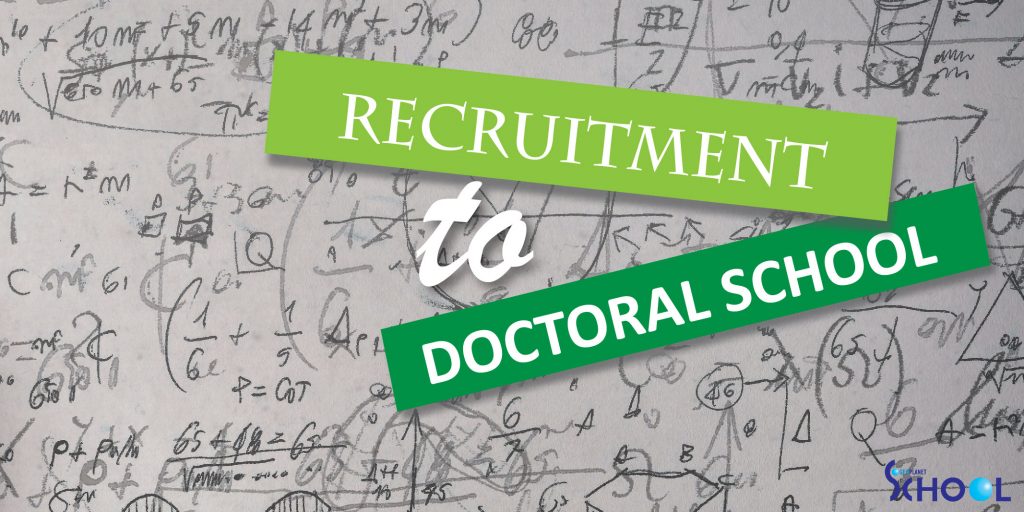

Nicolaus Copernicus Astronomical Center invites applications for astronomy and astrophysics PhD studies and related grant scholarship

The Nicolaus Copernicus Astronomical Center (CAMK PAN), a leading institute of the GeoPlanet Doctoral School, offers the opportunity to carry out graduate studies leading to a PhD degree in astronomy. The PhD studies are related to subjects pursued at CAMK PAN including observational and theoretical astrophysics as well as cosmology. Our senior scientists participate in the H.E.S.S., CTA, Hyper-Kamiokande, GADMC, DarkSide, LUMI-Q, and VIRGO/LIGO/Kagra, ET and EGO projects and are involved in instrumental projects concerning the astronomical satellites eROSITA, ARCUS and ATHENA. CAMK PAN represents the Polish astronomical community in the SALT consortium which operates an 11-m optical telescope in South Africa. The Center's scientists are leading participants in the Polish scientific satellite project, BRITE, dedicated to precise stellar brightness measurements, and in the project ARAUCARIA, dedicated to the calibration of the cosmological distance scale. They also operate Cerro Murphy Observatory in Chile and SOLARIS – a network of southern hemisphere small robotic telescopes committed to stellar astronomy, the search for exoplanets, and quantum satellite communication.
Studies last 4 years and for this call should begin on December 1st, 2024 (a later starting date is possible, but not later than April 1st, 2025). During the 4-year period, students are required to take specific courses, lectures (including interdisciplinary lectures) and participate in seminars, as well as prepare the doctoral thesis. All seminars and lectures are in English. The regulations of the doctoral school, including the program of the Studies, are posted on on the CAMK PAN web page.
Students based in Warsaw may apply for accommodation in the student house run by our Center.
An information about the proposed research topic is attached to this announcement. Single position is available. Before applying, candidates should contact their potential supervisor to obtain more details on the proposal (prof. Marcin Kuźniak, mkuzniak@camk.edu.pl).
Students in the doctoral school receive a scholarship for the period of 4 years. The minimum amount of scholarship is set in the Law on higher education and science and is 3466,90 PLN/month, gross (ca. 3077 PLN/month net), before the mid-term evaluation (years 1–2) and 5340,90 PLN/month, gross (ca. 4740 PLN/month, net), after the positive mid-term evaluation (years 3–4). For details of grant funding, see project description below.
For the application, candidates should provide their complete application documents including:
All documents should be in the PDF format, including scans, and should be submitted via
call is closed
by October 27th, 2024. In the online system, choose "Register" and "Nicolaus Copernicus Astronomical Center, Polish Academy of Sciences". After giving your consents, you will be able to enter your data and upload your application documents and select a topic (note: even though there is only one topic, it should be marked at the end of the registration process). After uploading the documents you should receive an email confirmation.
In addition to application documents given above, at least one recommendation letter should be sent directly by the referee to: phdstudies@camk.edu.pl, before the application deadline (October 27th).
The Recruitment Board will select candidates for the interview, which will take place November 6th – 8th, 2024 (9 am – 4 pm, CEST). Decisions about admission will be made by November 12, 2024 and all the candidates will be notified by e-mail. For additional information contact the coordinator of the doctoral school, Dr. Radosław Smolec (smolec@camk.edu.pl) or the Center’s secretary office (Mrs. Katarzyna Morawska, kasia@camk.edu.pl).
Warsaw, October 9th, 2024
Attachment: Proposed topic of PhD thesis:
Supervisors: dr hab. Marcin Kuźniak (Astrocent/CAMK PAN; contact: mkuzniak@camk.edu.pl)
We invite applications for a student scholarship funded by the Polish National Science Center. The successful applicant will work with Prof. Marcin Kuźniak on the project "Search for dark matter with liquid argon detectors " funded by the National Science Center (NCN), through grant OPUS-24 nr 2022/47/B/ST2/02015.
The duties of the successful applicant will involve work on different aspects of the liquid-argon dark matter detectors, specifically, development and optimization of the Monte Carlo simulation of the Global Argon Dark Matter Collaboration detectors, participation in the installation of the DarkSide-20k detector at LNGS, preparatory work and tests of hardware components, including wavelength shifting films and silicon photomultiplier modules to be installed in the detector, as well as analysis of commissioning data from prototypes / test-stands within the Global Argon Dark Matter Collaboration.
The main requirement for this position is the possession of a valid MSc degree or equivalent in physics (or astronomy, mathematics or engineering). Good knowledge of English and experience with programming, analysis of experimental data and Monte Carlo simulation will be required: good programming skills in C++ or python, optionally, familiarity with ROOT or Geant4. Hardware experience will also be an advantage.
Location: Warsaw
Funding: Grant fellowship: 5.000 PLN/month, gross, for 16 months and institute funding by up to 48 months in total.
Note: A single position is available.
Understanding delayed (spurious) emission mechanisms in dual-phase TPCs for Dark Matter searches